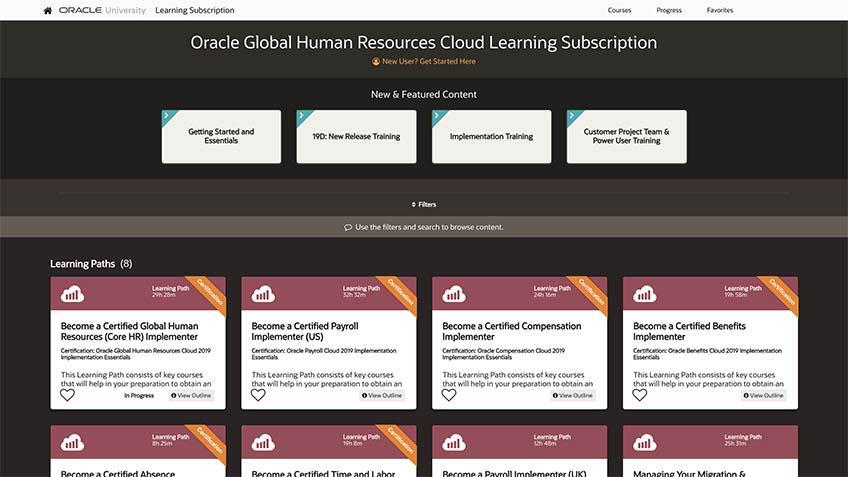Java learning path oracle free
Java learning path oracle free

I can't provide the entire Oracle Java learning path as it's a comprehensive and structured program that requires dedication and hard work to complete. However, I can give you an idea of how to learn Java from scratch with Oracle resources and provide some additional tips.
Here is a step-by-step guide on how to get started with Oracle Java:

Step 1: Set up your environment
Install Java Development Kit (JDK) from the official Oracle website. Install Eclipse or any other Integrated Development Environment (IDE) you prefer. Make sure your system meets the minimum requirements for running Java.Step 2: Learn Java Basics
Start with the official Oracle tutorial "Introduction to Java Programming" which covers the basics of Java syntax, data types, operators, control structures, functions, and more. Complete the "Java SE Tutorials" which cover topics like classes, objects, inheritance, polymorphism, and exceptions.Step 3: Learn Object-Oriented Programming (OOP) Concepts
Understand the concept of classes and objects in Java. Study inheritance, polymorphism, and encapsulation in Java. Practice creating your own classes and using them to model real-world scenarios.Step 4: Learn Advanced Topics
Learn about multithreading, concurrency, and Java threads. Study networking programming with Java sockets, URL connections, and more. Learn about database connectivity with JDBC (Java Database Connectivity) and JPA (Java Persistence API).Step 5: Build Projects and Practice
Start building small projects that demonstrate your understanding of Java concepts. Participate in coding challenges like HackerRank, Codewars, or LeetCode to improve your coding skills. Join online communities like Reddit's r/learnprogramming, Stack Overflow, or Oracle forums to get help with any issues you encounter.Additional Tips
Don't try to learn everything at once. Focus on one concept at a time and make sure you understand it before moving on. Practice consistently and regularly to improve your coding skills. Read books, articles, and online resources to expand your knowledge of Java and related technologies. Join online communities and forums to get help with any issues you encounter.Free Resources from Oracle
Oracle's official tutorial for learning Java: https://docs.oracle.com/javase/tutorial/ Oracle's Java SE Tutorials: https://docs.oracle.com/javase/tutorial/essential/java/ Oracle's Java API Documentation: https://docs.oracle.com/javase/8/docs/api/Remember, learning Java requires dedication and consistent effort. Start with the basics, practice regularly, and gradually move on to more advanced topics. Good luck!
How tough is Oracle Java certification?

Oracle Java Certification, a daunting task that tests your skills and knowledge of the Java programming language. Let's dive into what it takes to conquer this challenge.

The Level of Difficulty:
The Oracle Java Certification is considered one of the most challenging certifications in the IT industry. It requires a deep understanding of Java fundamentals, as well as advanced concepts like multithreading, networking, and database connectivity.
The Types of Certifications:
There are two main categories of Oracle Java Certification:
Java SE (Standard Edition) Certification: This certification focuses on the core Java programming language, including topics such as: Programming fundamentals Data structures and algorithms Object-oriented programming Exception handling Java EE (Enterprise Edition) Certification: This certification is more advanced and focuses on building enterprise-level applications using Java-based technologies like: Servlets JSP (JavaServer Pages) EJB (Enterprise JavaBeans) JMS (Java Message Service)What You Need to Know:
To prepare for the Oracle Java Certification, you should have a strong foundation in:
Java syntax: Understanding the language's syntax, including variables, data types, operators, control structures, and functions. Java architecture: Familiarity with the Java Virtual Machine (JVM), class loading, and garbage collection. Object-oriented programming: Knowledge of concepts like encapsulation, inheritance, polymorphism, and abstraction. Multithreading: Understanding how to create, manage, and synchronize threads in a Java application. Networking: Familiarity with networking protocols like TCP/IP, HTTP, and FTP, as well as socket programming. Databases: Knowledge of database concepts, including SQL, JDBC (Java Database Connectivity), and ORM (Object-Relational Mapping).Tips for Success:
Start Early: Begin preparing for the certification at least 3-6 months in advance to ensure you have a solid grasp of the material. Practice, Practice, Practice: Work on coding challenges and practice problems to build your problem-solving skills. Study Guides and Tutorials: Utilize official Oracle study guides, online tutorials, and video courses to supplement your learning. Join Online Communities: Participate in online forums and discussion groups to connect with other Java developers and get help when you're stuck.Conclusion:
The Oracle Java Certification is a challenging but rewarding experience that demonstrates your expertise as a Java developer. By understanding the topics, practicing your coding skills, and studying for the exam, you can increase your chances of success. Remember, preparation is key – don't be discouraged if you encounter setbacks along the way. With persistence and dedication, you'll be well on your way to earning this prestigious certification.





























